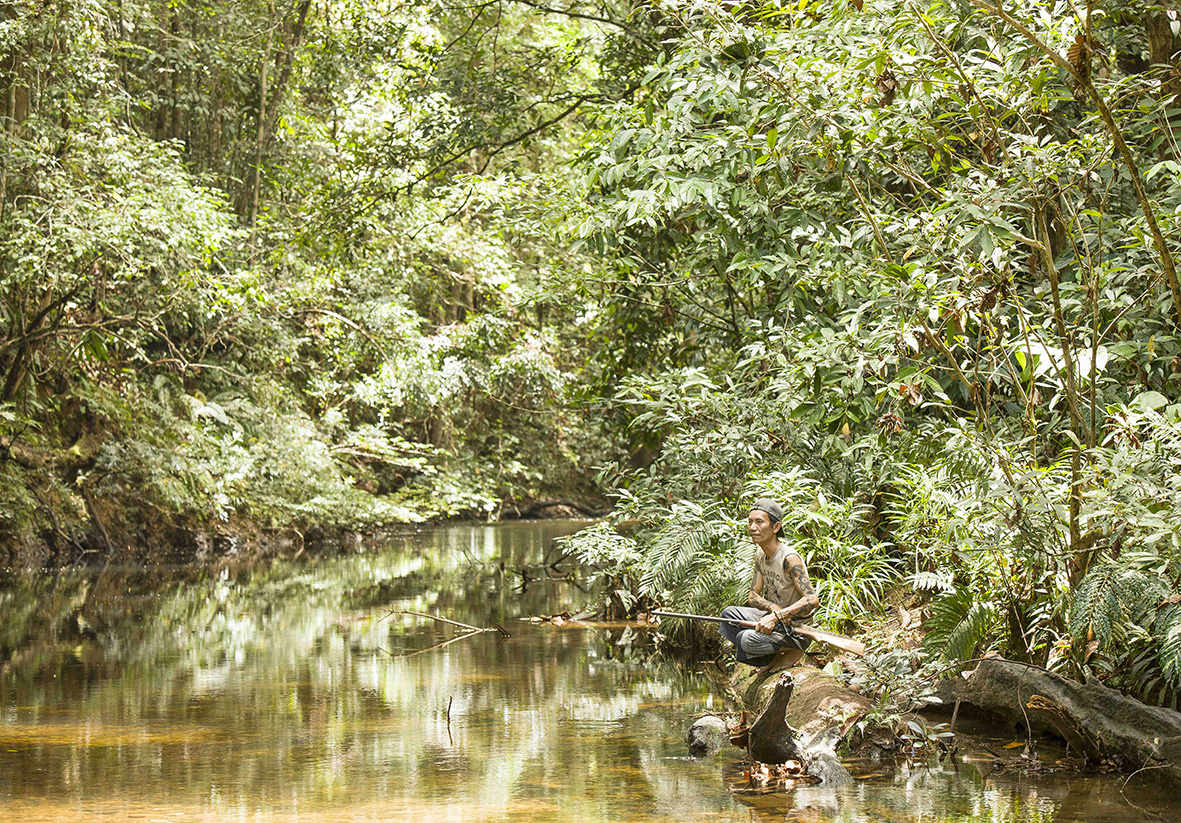PRESS RELEASE: 13-MARCH-2015
Human rights commissioner says long-awaited report will reveal significant violations in rights of Indonesia’s indigenous peoples
At Jakarta event, indigenous leaders voice outrage at initial findings, yet cite signs of progressunder new President, 70 years after end of Dutch rule
JAKARTA—(13 March 2015) A member of Indonesia’s National Commission of Human Rights today revealed that the commission’s report—to be released in May—will reveal a history of significant human rights violations affecting indigenous peoples in forests throughout the Archipelago, many of whom are under threat from growing global demand for timber, carbon stock, palm oil and mineral wealth.
“We are finding violations of the right to property, to live, to a fair trial, to feel safe, to an adequate standard of living,” said commissioner and researcher Sandra Moniaga, speaking at a press briefing in Jakarta. “These are covering every imaginable realm of life, whether economic, social, cultural, or political.”
The preview of Indonesia’s first National Inquiry on the Violations of Indigenous Peoples Rights within Forest Zones was revealed at a press briefing today organized by AMAN, the Indigenous Peoples’ Alliance of The Archipelago. An organization that now has 2.244 member communities, 15 million people, AMAN is celebrating its 16th birthday in Jakarta this week, and is beginning to flex its political muscle.
“We believe that the cases the Commission has reviewed represent massive and systematic human rights violations, and we want to see them presented as such in the final report,” said Abdon Nababan, Secretary General of AMAN. “This is the first national inquiry into human rights violations in Indonesia that focuses on indigenous peoples. So we are hopeful that change is coming, but we also that it will happen only when the President turns his full attention to righting these terrible wrongs.”
The Human Rights Commission has held one national public hearing, as well as regional hearings in Sumatra, Java, Bali-Nusa, Sulawesi, Kalimantan, Maluku and Papua. At each event, witnesses, experts, local leaders and advocates from civil society organizations have been invited to speak. Moniaga estimated that around 40 cases have been reported to the commission during its inquiry. She was not free to provide details of the cases, but she did talk about the “root causes” of the violations she and her colleagues have documented.
“We are seeing a lack of legal certainty for the recognition of indigenous peoples in Indonesia,” Moniaga said. “There is no effort being made to designate the boundaries of their territories on official maps and documents; they face legal obstacles in their efforts to claim legitimacy; indigenous women face discrimination on multiple levels; government agencies (including the police) and the military have been working for the private sector, and not for the indigenous communities, and there is no ministerial level institution with the mandate to resolve the prolonged land conflicts.”
Criminalization of Indigenous Leaders
A film shown during the press briefing today illustrated the quandary faced by indigenous peoples in Indonesia, who are often shut out of the forests that have been their home for centuries, and on which they depend for food and shelter, and to maintain their cultural traditions. The film, titled Pandumaan Sipituhuta, documents the struggle of a rapidly dwindling forest community, where the people of Pandumaan and Sipituhuta have put up a strong fight against the Toba Pulp Lestari company to stop the growth of monoculture eucalyptus plantations. The story, captured by UK based Handcrafted Films, represents one of the cases reviewed by the National Commission of Human Rights.
If their leaders stand up to plantation owners intent on destroying their forests, or resist efforts to block a community’s access to national parks, the result is incarceration, and often the loss of a way of life a community may have followed for generations.
“These cases happen in all indigenous communities because indigenous peoples are very easy to criminalize,” Nababan said. “They often do not have legal protections, or they don’t know their rights. This is an unacceptable situation.
“Our priority right now is to stop the criminalization of indigenous leaders. We ask for the president to take action on this.”
In Bengkulu province in the South West of Sumatra, for example, four men, members of the Semende Banding Agung indigenous community, were arrested last year on the grounds of violating Law No. 18 Year 2013 on Prevention and Eradication of Forest Destruction. This occurred after the Minister of Forestry, through the Office of Bukit Barisan Selatan National Park (TNBBS), sent a military operation into their community to forcibly evict 380 families. For three days, the indigenous peoples were beaten, verbally abused and threatened with gunshot, and their possessions damaged and seized, and houses were burned down. As of now, the four men remain jailed in Kaur Resort Police and will be imprisoned for another three years.
“We have good policies in place, now,” said Rukka Sombolinggi, Deputy to Secretary General on Policy Advocacy, Legal and Politics of AMAN, “The Constitutional Court ruled in our favor; we have the rights to our customary forests, and the maps of our traditional forests are being accepted by the national government. But they are not influencing actual conduct at the local level.” In the short-term, AMAN is calling for a presidential task force to review the cases of more than 150 indigenous leaders who are in jail throughout the country.
“The task force would review all these cases of criminalized indigenous peoples,” Nababan said. : “Grasi Amnesti Abolisi Rehabilitasi. In order to release these people from jail, the President needs to be briefed on the situation. And for these decisions to be made there needs to be a task force on indigenous peoples to guide the decision makers.”
1 https://www.youtube.com/watch?v=Y3vKyv_q3O8&feature=youtu.be
2 http://tbinternet.ohchr.org/Treaties/CESCR/Shared%20Documents/IDN/INT_CESCR_CSS_IDN_16819_E.pdf
